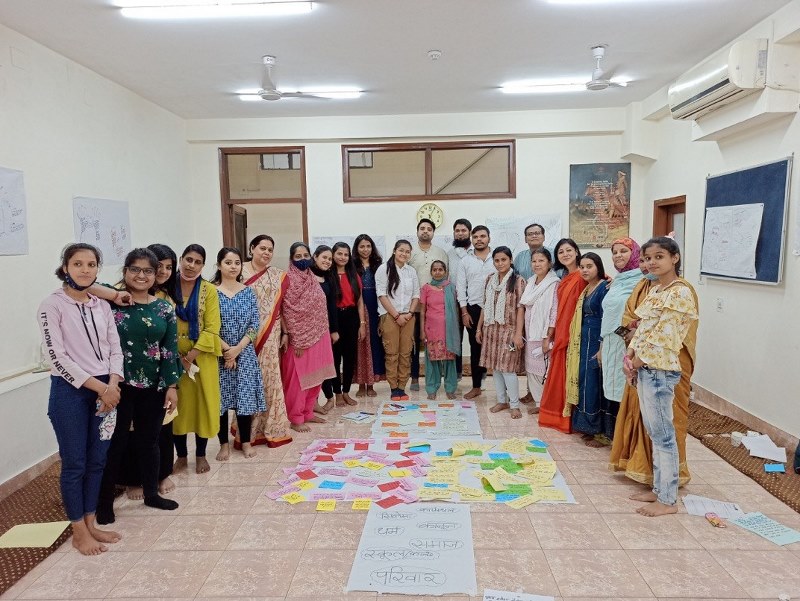Participants: A total of 26 coalition members participated in the workshop, of whom 20 were women and girls. Moreover, the group constituted of diverse stakeholders from within the coalition, including members of youth groups (8), school management committee members (4), anganwadi workers (1), members of local women’s groups (5), local NGO members (7) from the community of Seemapuri as well as some members from state and national level NGO’s (1).
The workshop was led by MFF’s Director Nandita Bhatt, along with two co-facilitators – Nitya Sriram and Samiksha Jha. They were provided additional support from members of the MCD evaluation team at PSD and PRIA.
A customised training design was developed for the purpose of workshop, which helped the MCD coalition members develop a sound understanding of the concepts of gender, the cross-cutting and pervasive nature of gender barriers, misconceptions and gaps in awareness, and initiation into the complex nature of issues intersecting with gender.

The objectives of the workshop were to ensure that participants have:
1. Self-Imprinting Exercise
For this exercise, the participants were split into pairs and asked to imprint a part of their bodies on a chart. Within these drawn out prints, participants were asked to write down the qualities that they admire in the women and girls in their families, as well as the men and boys. After completing this activity, various individuals presented to the group what they felt the positive qualities of the women and men in their families were, which were informed by their perspective on gender.
Key takeaways

2. Understanding Gender in Own Life
Based on the discussions on gender roles in families, participants split up into groups and presented their thoughts and experiences through art in the form of short skits, poems and even a rap verse! The skits performed by two groups illustrated several examples of the socialisation process and stereotypical gender roles, ranging from children receiving certain toys (dolls for girls and cricket bats for boys) to discriminatory treatment at the workplace and how menstruation is taught and often not taught at school.
Key takeaways:

3. Myths and Facts
For this activity, participants were divided into small groups and provided a list of statements, which were based on their reflections and sharing from the previous activities. The participants were then asked to discuss these statements and decide if they were myths or facts.
Key takeaways: